Small decisions can have lifelong consequences
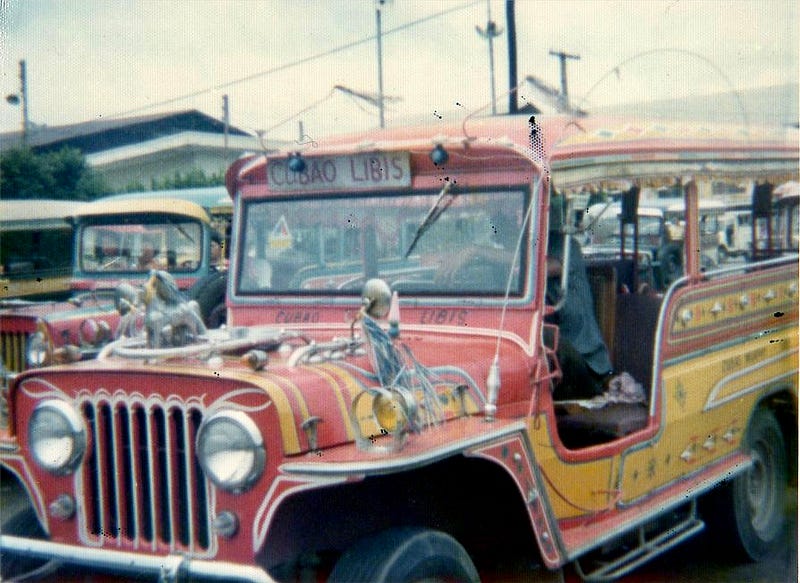
Manila, that teeming mass of happy, colorful, friendly people, was my first destination upon moving away from the US way back in 1976. In my youthful idealism and naivety, I had set off to “help people.”
I loved my years in Manila. The bustling traffic seemed to have no rhyme nor reason — or any consideration for traffic rules or safety. The colorful, open-backed jeepneys. The overcrowded buses, some wooden-framed built on the chassis of surplus WWII-era trucks. And the loud motorcycles with sidecars that seemed to be held together by nothing more than twine and a prayer.
This was where I would live out my days, I imagined, working in small mission schools. I could influence children for the better. I could make a small difference in the world.
I met a man I loved. I gave birth to two children.
It was a happy life, for the most part — even in a country under the iron rule of the notorious Ferdinand Marcos.
But then everything changed.
Revolution
The controversy surrounding the results of the February 1986 presidential election grew, and turmoil spread throughout the country. Although Ferdinand Marcos claimed victory, the election was plagued by accusations of vote rigging, and the results were contested. His opponent, Corazon Aquino, was wildly popular among the common people. She was the widow of one of Marcos’s staunchest critics, Benigno S. Aquino, Jr., who had been assassinated on the tarmac of Manila International Airport in 1983.
Marcos and his family soon fled to Hawaii, having been advised to leave the country by one of President Reagan’s close associates, the then General Chairman of the Republican Party, Senator Paul Laxalt. They left from US Clark Air Base, north of Manila, taking with them crates and crates of cash, gold, jewels, and other valuables — so much that the Guinness Book of World Records awarded the Marcoses the nefarious award of the “Greatest robbery of a Government.”
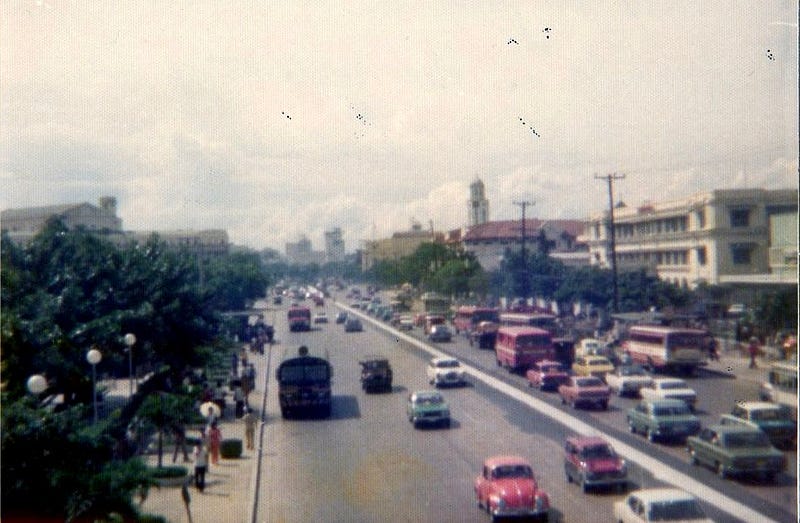
During this time, Manila’s main thoroughfare, EDSA, the commonly used name for Epifanio de Los Santos Avenue, was the stage for the public to air their grievances against the Marcoses’ oppressive regime. This highway, filled with over a million protestors, was just blocks from our house.
That in itself was not troubling. The protests were largely peaceful. Yet, a bomb had gone off in the shopping area we frequented. Then, one morning just after dawn, outside our front gate, we discovered the body of an unfortunate man who had had his throat cut.
Helping a friend
Meanwhile, my dearest friend who was suffering from hyperemesis gravidarum, a severe form of morning sickness, needed to move to Tokyo. She asked for my help.
Without giving it much thought, I agreed. Who wouldn’t want to help their best friend in such circumstances?
So my husband, our two young children, and I traveled with her and her brood of small children, arriving in Tokyo in 1987.
Immediate illiteracy
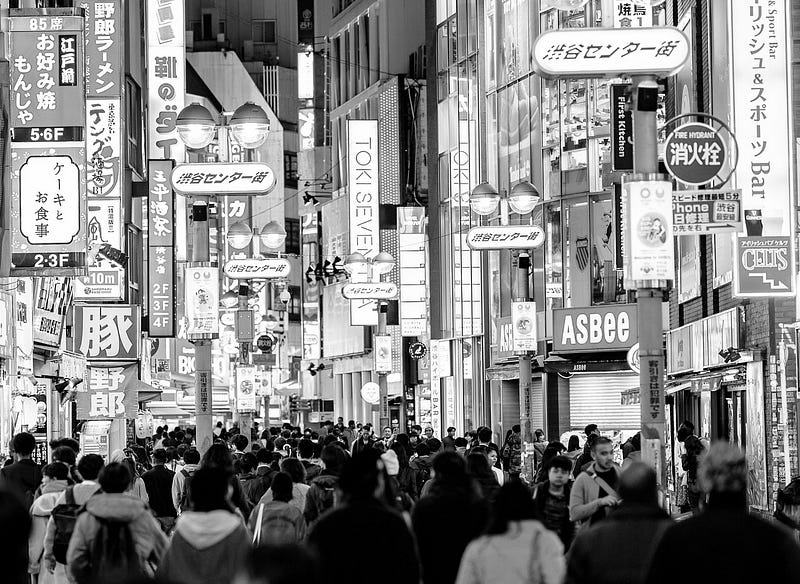
To say I was ill-prepared for such a move would be an understatement. I knew three Japanese words — dōmo, dōzo, and ohaiyō, “thanks,” “go ahead,” and “good morning.”
I landed in a country that seemed to be the polar opposite of the cheerful, colorful, and friendly Philippines.
There were no smiling greetings on the streets or people wearing bright, flamboyant clothing.
There were no colorful Jeepneys — in fact, I saw no colored vehicles at all. Black or white cars cruised through clean streets with narrow lanes. There were no honking horns nor bus ticket punchers calling destinations. The city was eerily bereft of sound.
Trains slid in and out of stations filled with busy, austere, black-suited men. Sardining into one of the cars, I noticed no seats offered to women, whether pregnant, babe in arms, or even to the elderly.
On the sidewalks of the city, women wearing bland conservative clothing carried shopping bags, shuffling a few steps behind their imperious husbands until rushing ahead to open doors for them.
What rude men, I couldn’t help but think, comparing them to the Western gentlemen I had become accustomed to in the first 30 years of life.
Adding to my sense of alienation, I was instantly illiterate.
Due to English being used in all schools with local dialects spoken at home, the majority of the Philippine population were bilingual. Not so in Japan, where the highly nuanced, contextual, and culturally enmeshed Japanese language is so difficult, it takes nine years of education just to be able to read the newspaper. Teaching English in schools was minimal, at best.
No one spoke to us in English. I could read no signs. I could understand nothing at all.
Time passes
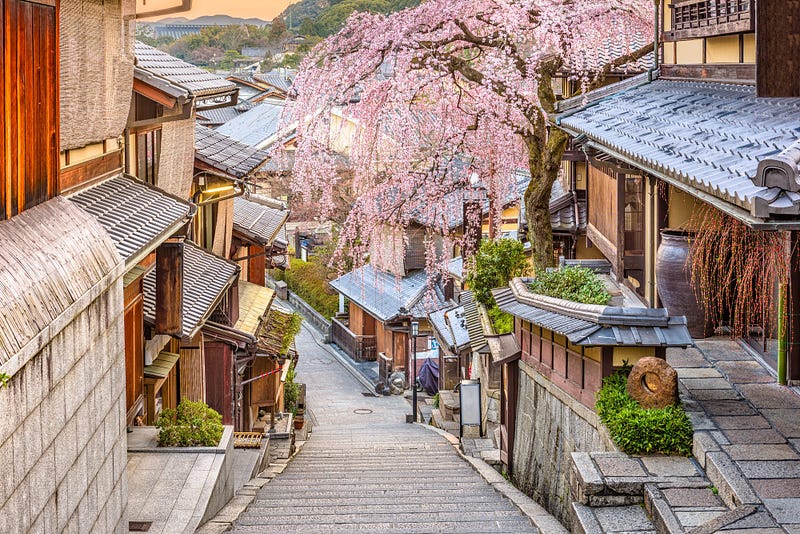
One year added to another. I focused on raising my many children and educating them in English to complement their education in Japanese public schools.
My family moved away from the big city of Tokyo to Kagoshima, a city in southern Kyushu, surrounded by idyllic natural beauty.
As the years passed, I slowly learned more about this unusual land with its long history, its many traditions, and its unique customs. As with a person we are just getting to know, understanding them is the first step to love. The more I learned about Japan, the more my love and appreciation for this extraordinary land grew.
I came to appreciate the philosophies of Shinto and Buddhism, and the adamant beliefs of my younger years were left behind. I woke up to the reality that volunteer work would not pay the bills, and undertook work as a private English teacher and editor.
When most of my children left home, I started work as a tour guide, and that was a turning point in my life.
Seeing Japan once again from the viewpoint of an outsider — vicariously through my foreign guests — deepened my interest in Japan’s fascinating past, folklore, and culture. I wanted to learn as much as I could about this country that had become my home, and I undertook years of study which continue to this day.
Living in Japan today
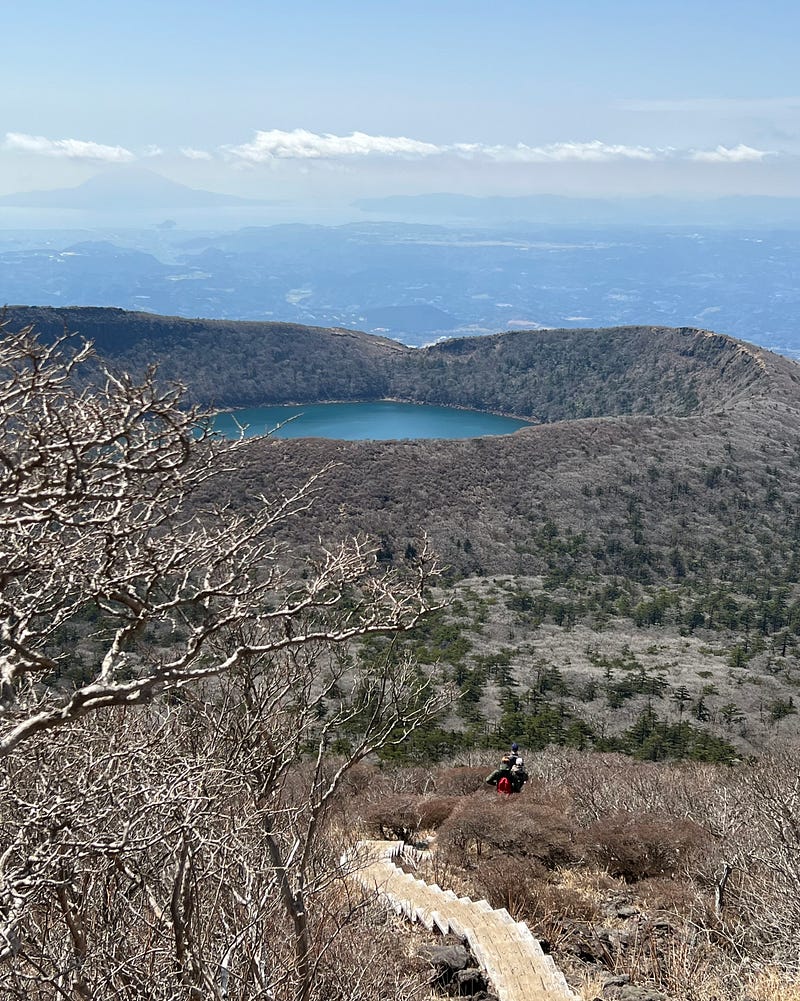
These days, I do my best to share my love of Japan, its history, its hidden treasures, and its many stories with curious people through my writings, tours, and presentations.
I hike along ancient highways and mountain trails, and even in my beautiful rural neighborhood, and I travel to explore new wonders in other prefectures.
Thirty-five years after first setting foot in this country, I have become an old woman. Reflecting on that seemingly insignificant decision in 1987 to help a friend, I now know it was momentous, hugely affecting my life and that of my eight children.
I will never know what would have happened had I continued my life in Manila, but I am happy for the life I have in this beautiful, safe, and clean country of Japan.
If you have questions about Japan or suggestions for articles, please add them in the comments. For more photos and information on Japan, follow me on instagram at: https://www.instagram.com/more_than_tokyo/




